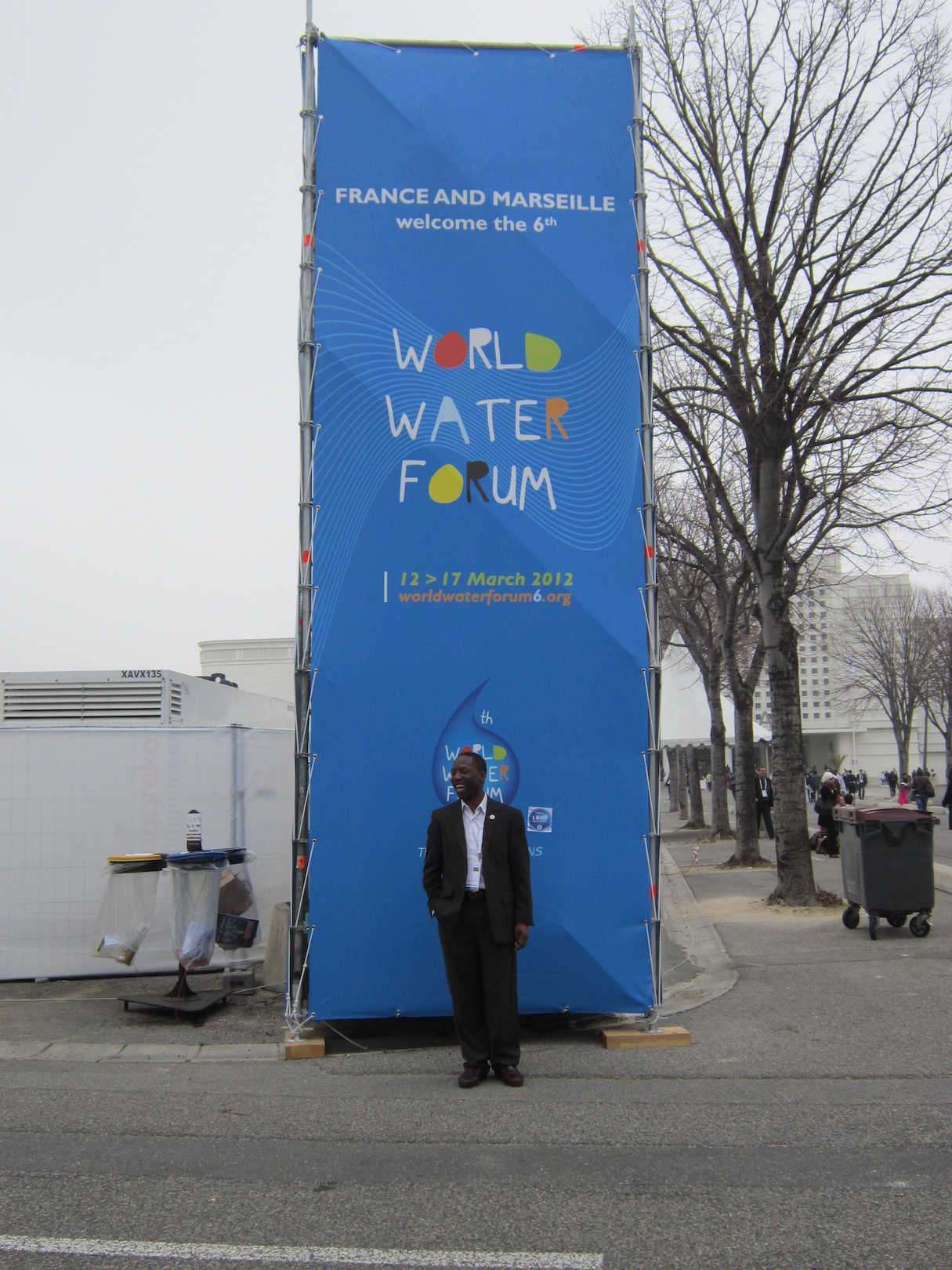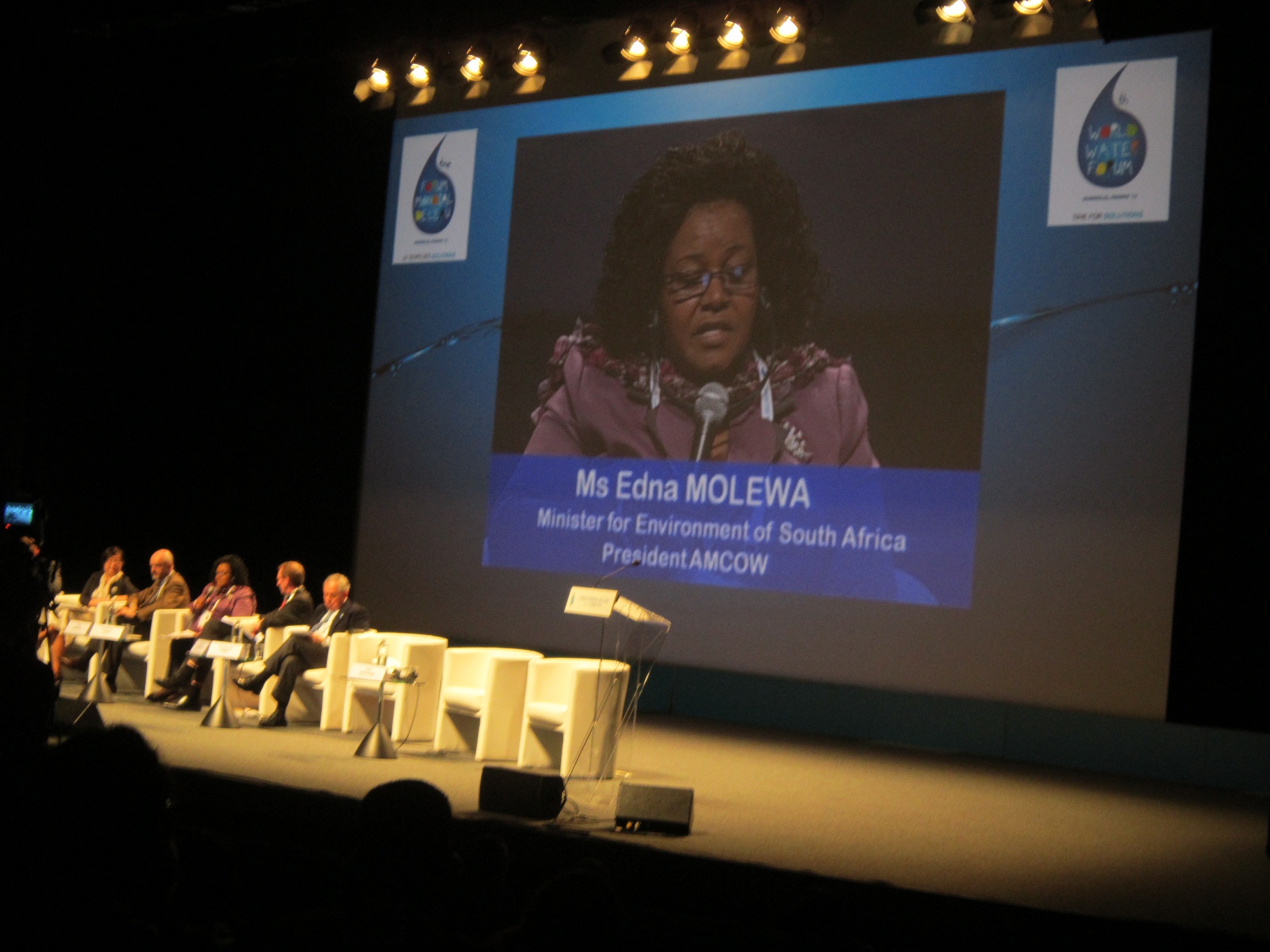Lessons from World Water Forum: Why Water is Pivotal to Sustainable Development
 Jimmiel at the 6th World Water Forum.
Jimmiel at the 6th World Water Forum.
Exactly three months before the UN Conference on Sustainable Development (more commonly referred to as Rio+20 because it will be held in Rio de Janeiro, Brazil), the sixth World Water Forum (6th WWF or the Forum) took place last week in Marseille, France.
Held every three years since 1997, the Forum constitutes the world's largest meeting around water, mobilizing creativity, innovation, competence, and know-how around water. It is a gathering of diverse stakeholders around today’s local, regional, and global issues.
The purpose of the 6th WWF was to bring water issues to the forefront of all political agendas, realizing that sustainable development is impossible while water issues remain unsolved—especially given the realities of climate change now upon us. Over the course of the week, the Forum saw 140 ministerial delegations, more than 800 speakers, and about 25,000 participants from more than 180 countries across the world. Participants engaged in over 400 hours of discussions and debates, over 250 sessions and panels, and some 100 grassroots and citizenship events.
African Wildlife Foundation (AWF) joined the global dialogue, with yours truly participating in a panel of experts to address how we can promote green growth and value ecosystem services. Discussion focused around the question, “What is the business case for water in helping to encourage green growth?”
I was able to share AWF’s experiences with the African Heartlands Program (which promotes biodiversity conservation, together with livelihood development, at the landscape level) as a “living” case of how we can connect public, private, and local community stakeholders for a common good. In our Heartlands, AWF has been successful in making the case to partners and communities to save species and conserve land, because wildlife and other natural resources can be the ultimate economic driver (through tourism, for example).
 Ms. Edna Molewa, Minister for Environment of South Africa, speaks while participating on a high level panel discussing water and green growth.
Ms. Edna Molewa, Minister for Environment of South Africa, speaks while participating on a high level panel discussing water and green growth.
There is a lot of energy and discussion underway regarding how sustainable development is being influenced by climate change dynamics. What is clear from all of these discussions is that, as we see more clearly the effects of climate change, water will increasingly be a primary issue for sustainable development. (Or, perhaps it is more accurate to say that water, unless addressed, will be an obstacle to sustainable development.) Everyone—from local and national organizations to bodies such as the World Bank and environmental development banks—is grappling with questions around water and how to manage trans-boundary water resources. Green growth cannot happen unless we first address water availability.
Aligned with this is the idea that any sustainable development must come from the nexus of water, energy, and food security—once we address this confluence of challenges, then we will also be appropriately addressing the environment and conservation.
The UN Conference on Sustainable Development (Rio+20) is taking place June 20–22, 2012. As policymakers and diplomatic representatives from around the world travel to Rio de Janeiro, the discussions from the 6th WWF are sure to resonate throughout the conference—and will have to be addressed in order to ensure that whatever development initiatives the international community undertakes will actually have impact. In the words of the World Bank representative at the Forum panel, as we move forward, it is essential that we “take the technical language of the pump room to the policy language of the board room.” That is to say, we must let technical innovations around water, combined with indigenous and local knowledge and the realities on the ground inform policy and the resultant financing mechanisms.